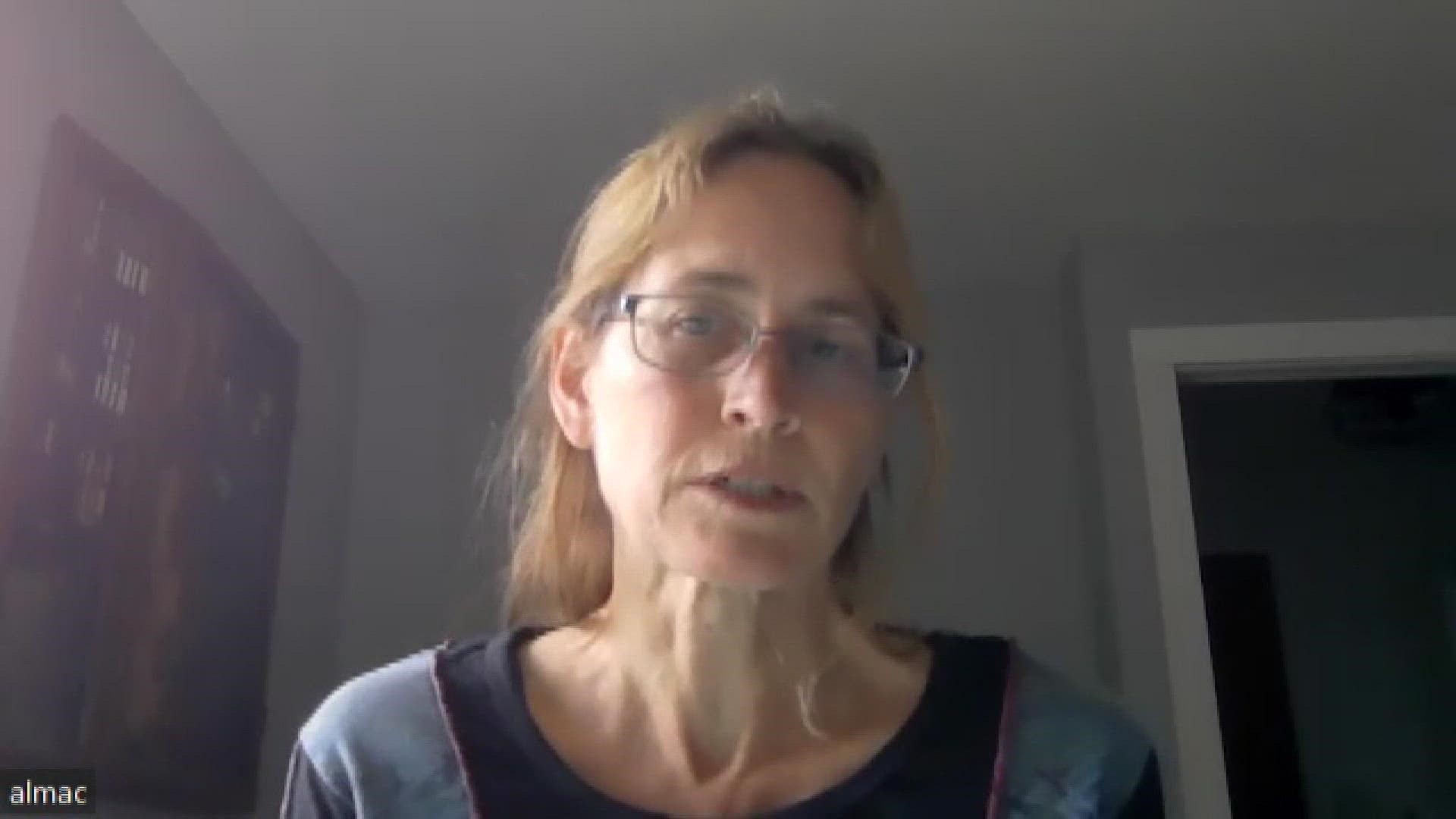FORT COLLINS, Colo. — Dr. Amy MacNeill studies and teaches about pox viruses at Colorado State University (CSU). She’s an associate professor in the Department of Microbiology, Immunology and Pathology at CSU’s College of Veterinary Medicine and Biomedical Science.
Dr. MacNeill sat down with 9News reporter Jennifer Meckles to explain what she knows about monkeypox from studying past outbreaks, and its effect on animal species.
This interview has been edited for context and length.
9NEWS: Tell us more about the pox virus family
Dr. MacNeill:
“Pox viruses are a very large group of viruses that can infect most animal species on the planet. There are avian pox viruses, pox virus that you find in goats and sheep and cattle and people. Monkeypox virus is a subgroup of pox viruses called orthopox viruses, and it’s a pretty important subgroup because one of its members was smallpox, which was a horrible infection in humans that we eradicated by vaccination.”
“Monkeypox was named ‘monkeypox’ because it was first isolated and found in monkeys, but we actually don’t think that’s the reservoir. We think the reservoir for the virus are some squirrels and probably rodents… So monkeys, like us, are just the spillover species that monkeypox is just really good at causing disease in.”
9News: As you watch this outbreak, is the monkeypox virus behaving like you’d expect? Is it evolving as fast as we saw COVID-19 mutate?
Dr. MacNeill:
“They’ve already sequenced some of the isolates from this new outbreak and there’s no significant change in the genetics of this virus compared to previous outbreaks. So it’s not emerging like COVID did where its changed its genome and now it’s a new thing. Its been around a long time.”
9News: Tell us more about the virus transmission – in past outbreaks and today.
Dr. MacNeill:
“It’s usually interaction with pets or other animals species. A person will get a lesion, then inadvertently spread it to a family member or someone they have touched or shared food with or something like that.”
“We can trace [past outbreaks] where people – young children usually – have been interacting with an animal in the bush, a squirrel or rodent or, in the case of an outbreak in the U.S. in 2003, it was prairie dogs who had been exposed through being shipped with rodents from Africa.”
“Unfortunately what we’re seeing [in this current outbreak] is a lot of human to human spread for people who have multiple [sexual] partners.”
“From everything we know, the most common route of transmission is from contact. But we do know the virus can get on what we call ‘fomites,’ can get on clothing or something person is wearing. Then if you touch that clothing you could get the virus from that.”
9News: What do we know about the severity of this type of monkeypox?
Dr. MacNeill:
“There are two kinds of monkeypox viruses we know of, one isolated from west Africa, and one that’s more the Congo basin area. Usually the Congo area [strain] is a little more severe disease. Both are terrible, but luckily were dealing with the less severe disease which means there will be hopefully fewer fatalities.”
“But the way [the current outbreak] is being spread is not surprising, I think we’re dealing with the less severe one. I think some people maybe have fewer lesions, or don’t know they have lesions [initially] because they’re in their oral or nasal cavity or rectum – so they don’t see them at first.”
9News: With your interest in pox viruses, what are you watching closely with this outbreak?
Dr. MacNeill:
“I think my main concern, and the concern of a lot of other pox virologists I’ve talked to is, there’s going to be some reverse transmission into animal populations that will enable monkeypox virus to become endemic in different rest of the world. For so long it’s only been endemic in species in Africa. And now I think there’s quite a high chance it might become endemic in the US or Europe.”
“It would be best if we could contain it before it gets into any of our wildlife species so that it doesn’t become endemic here.”
SUGGESTED VIDEOS: Latest from 9NEWS
MORE WAYS TO GET 9NEWS
Subscribe to our daily 9NEWSLETTER
Download the 9NEWS APP
iTunes: http://on9news.tv/itunes
Google Play: http://on9news.tv/1lWnC5n
HOW TO ADD THE 9NEWS APP TO YOUR STREAMING DEVICE
ROKU: add the channel from the ROKU store or by searching for KUSA.
For both Apple TV and Fire TV, search for "9news" to find the free app to add to your account. Another option for Fire TV is to have the app delivered directly to your Fire TV through Amazon.

